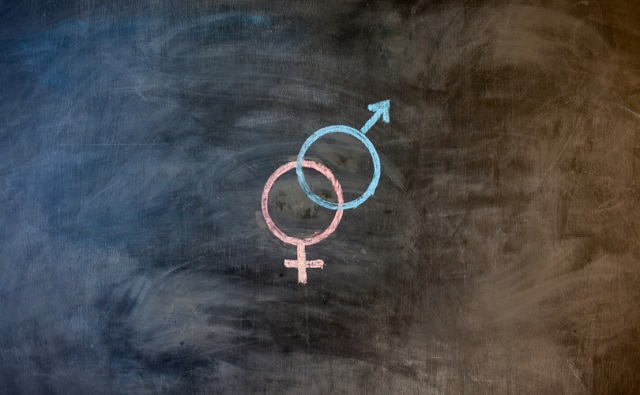Opinion
Trudeau’s home heating oil exemption shows politics trumps real affordability
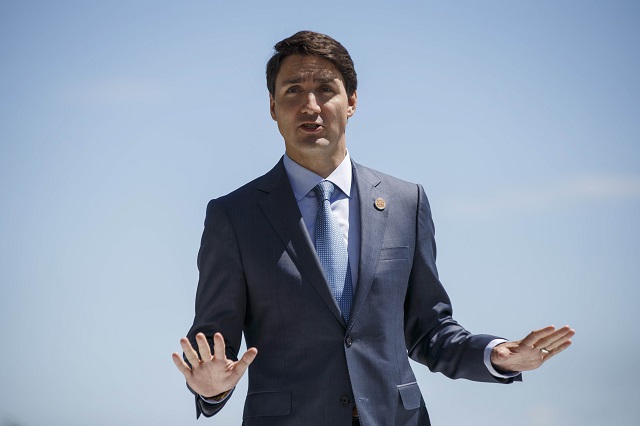
From the Canadian Taxpayers Federation
Author: Jay Goldberg
It turns out desperate pigs really do fly.
In a colossal policy reversal, Prime Minister Justin Trudeau announced a suspension of the carbon tax on home heating oil for the next three years. But that one concession favours one region over others and is far from enough to protect Canadians from the brutal realities of the carbon tax’s impact on family budgets.
Trudeau’s carbon tax concession was specifically targeted at Atlantic Canada because it deals with home heating oil. Forty per cent of Atlantic Canadian households use heating oil to heat their homes. Compare that to just two per cent of Ontario households.
Atlantic Canada had a special deal with Trudeau until this summer. The federal government gave Atlantic provinces permission to exempt home heating oil from their carbon taxes.
But the region’s special deal ran out in July, with full federal carbon tax pricing kicking in on Canada Day, including on heating oil.
With winter fast approaching, taxpayers in Atlantic Canada recognized the massive tax hike they were about to face just to stay warm.
Last winter, Atlantic Canadian households paid no carbon tax on their home heating oil bill. This winter, the average household was poised to spend $272.
Public opinion polls of late show Atlantic Canadians are preparing to vote with their chequebooks. The anti-carbon tax Conservatives are gaining steam.
The Conservatives forced a vote in the House of Commons on repealing the carbon tax earlier this month. One Liberal MP from Newfoundland and Labrador had the courage to stand up for his constituents and vote to repeal the tax.
Avalon MP Ken McDonald was crystal clear in articulating why he voted the way he did.
“I’ve had people tell me they can’t afford groceries,” McDonald said. “They can’t afford to heat their homes. You can’t make it more expensive on people than what they can handle. And that’s exactly what’s happening right now.”
McDonald spoke a truth Trudeau has consistently refused to hear, or at least acknowledge. The federal carbon tax is making life less affordable for Canadians.
A report from the non-partisan Parliamentary Budget Officer shows this plain as day. This year, the average Canadian family will lose between $347 and $710 due to the carbon tax, even after the rebates.
After McDonald voted to repeal the carbon tax, other Liberal MPs from Atlantic Canada voiced their concerns in public.
In the wake of all of this, Trudeau caved. He announced a three year suspension of the carbon tax on home heating oil. Conveniently, that suspension ends just after the next federal election.
Most Ontario households use natural gas to heat their homes. It’s cleaner than home heating oil, but Trudeau is keeping the carbon tax on natural gas in place.
That’s proof that this is all about politics.
The average Ontario household using natural gas will be paying a $326 carbon tax bill this winter. Those folks won’t get an exemption under Trudeau’s new plan.
If Liberal MPs in Ontario take a courageous stand like McDonald did in Newfoundland, families here wouldn’t get punished with a carbon tax for heating their homes.
What shouldn’t be lost in any of this is that carbon tax misery will still be felt coast to coast, even though many in Atlantic Canada are getting special treatment.
Families in every province will still pay carbon taxes at the pumps when filling up to drive the kids to school. And food will still be more expensive because truckers who ship the food and farmers who produce the food will still be paying carbon taxes on fuel.
It’s time for Trudeau to stop driving up the cost of living and dividing Canadians based on political calculations. The feds need to axe the carbon tax on everything everywhere, no matter the postal code.
Business
Government red tape strangling Canada’s economy

From the Fraser Institute
The cost of regulation from all three levels of government to Canadian businesses totalled $38.8 billion in 2020, for a total of 731 million hours—the equivalent of nearly 375,000 fulltime jobs.
One does not have to look too deeply into recent headlines to see that Canada’s economic conditions are declining and consequently eroding the prosperity and living standards of Canadians. Between 2000 and 2023, Canada’s per-person GDP (a key indicator of living standards) has lagged far behind its peer countries. Business investment is also lagging, as are unemployment rates across the country particularly compared to the United States.
There are many reasons for Canada’s dismal economic conditions—including layer upon layer of regulation. Indeed, Canada’s regulatory load is substantial and growing. Between 2009 and 2018, the number of regulations in Canada grew from about 66,000 to 72,000. These regulations restrict business activity, impose costs on firms and reduce economic productivity.
According to a recent “red tape” study published by the Canadian Federation of Independent Business (CFIB), the cost of regulation from all three levels of government to Canadian businesses totalled $38.8 billion in 2020, for a total of 731 million hours—the equivalent of nearly 375,000 fulltime jobs. If we apply a $16.65 per-hour cost (the federal minimum wage in Canada for 2023), $12.2 billion annually is lost to regulatory compliance.
Of course, Canada’s smallest businesses bear a disproportionately high burden of the cost, paying up to five times more for regulatory compliance per-employee than larger businesses. The smallest businesses pay $7,023 per employee annually to comply with government regulation while larger businesses pay a much lower $1,237 per employee for regulatory compliance.
And the Trudeau government has embarked on a massive regulatory spree over the last decade, enacting dozens of major regulatory initiatives including Bill C-69 (which tightens Canada’s environmental assessment process for major infrastructure projects), Bill C-48 (which restricts oil tankers off Canada’s west coast) and electric vehicle mandates (which require all new cars be electric by 2035). Other examples of government red tape include appliance standards to reduce energy consumption from household appliances, home efficiency standards to reduce household energy consumption, banning single-use plastic products, “net zero” nitrous oxide emissions regulation, “net zero” building emissions regulations, and clean electricity standards to drive net emissions of greenhouse gases in electricity production to “net zero” by 2035.
Clearly, Canada’s festooning pile of regulatory red tape is badly in need of weeding. And it can be done. For example, during a deregulatory effort in British Columbia, which appointed a minister of deregulation in 2001, there was a 37 per cent reduction in regulatory requirements in the province by 2004.
Rather with plowing ahead with an ever-growing pallet of regulations to be heaped upon Canadian businesses and citizens, government should reach for the garden shears and start reducing the most recent regulatory expansions (before they have time to do too much harm), and then scour the massive strangling forest of older regulations.
Whacking through the red tape would go a long way to help Canada’s economy out of its dismal state and back into competitive ranges with its fellow developed countries and our neighbours in the U.S.
Author:
Bruce Dowbiggin
The Most Dangerous Man In Canada: Emmanuel Goldstein Reborn
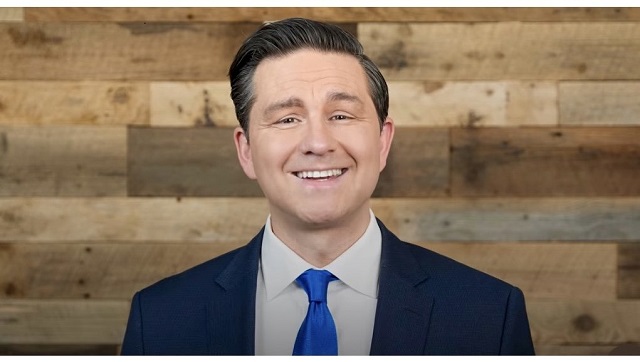
Emmanuel Goldstein was once an important member of the Party but became a traitor. Although he was sentenced to death, he escaped and formed the Brotherhood, an organized body of rebels committed to the destruction of the Party and the party’s way of life.— George Orwell, 1984
For Canadians who think that rising commodity prices, carbon tax increases and corruption of the federal government are their biggest concerns, we have news for them. If you listen to the bien pensants of Canadian media, the greatest threat to the nation is Conservative leader Pierre Poilievre.
Just sample the ad hominems aimed at the man who has a 20-point lead in polls for next prime minister. “Pierre Poilievre is pretending he doesn’t know how his job works because it makes it easier” (Globe & Mail). ”Why is Pierre Poilievre so angry?” (Macleans) “Canadians deserve better than this nonsense… There’s a difference between passion and churlishness” (Hill Times). And this barb from Liberal member/ House Speaker Greg Fergus’ event :“Pierre Poilievre and the Conservatives propose reckless policies that would risk our health, safety and pocketbooks.”
Even the compliments are back-handed. “Canadians don’t seem to hate Poilievre like they used to: Widely despised upon winning the leadership, Poilievre is now winning ‘preferred prime minister’ polls” (National Post). No wonder floundering Liberal leader Justin Trudeau just keeps the hits coming at Poilievere. “Are we a country that looks out for each other … or do you go down a path of amplifying anger, division and fear?” Scary, kids.

Look, partisanship comes with the territory in politics. Nastiness, too. Even in Canadian political coverage. Fine. But this welter of Poilievre loathing comes in the wake of a decade of collective Trudeau amnesia from the self-appointed keepers of the flame in the fourth estate.
Listening to a recent podcast featuring three bonafide Canadian establishment media grandees gave us a hint into what has been remembered and what has been forgotten. It doesn’t matter which three (I’ve admired all three at one time or other.) . They’re now largely interchangeable in their complacent attitude of Keep Calm & Vote Justin. .
The first— and perhaps most significant— thing you get from listening is the blithe acceptance of politics-as-usual in the time of Trudeau the Younger. The collapse of the old order of doing business in Canada since PMJT was elected in 2015 is never discussed in Ottawa’s polite company. Canadians’ distrust in their authorities the past decade is all so much conspiracy talk.
Specifically, there is a black screen where the Truckers Convoy should be. Federal Court Justice Richard Mosley’s found that “there was no national emergency justifying the invocation of the Emergencies Act and the decision to do so was therefore unreasonable and ultra vires”. ( Ultra vires = actions beyond the scope of the law.) In a rules-based society this condemnation of the extraordinary suspension of civil order in February of 2022 would have forced a change in government— if not a self-examination of society.

But, white-washed by the purchased media, Trudeau’s abrogation of the rules of civil society was made to disappear after Justin waved his regal hand. Which made what happened during Covid— the closure of society and the criminalization of dissent— inevitable. You’d think forcing citizens to take an untested vaccine at the risk of losing their job, their freedom, their health (now known to have been dangerous to many) would be preeminent in the discussions.
Nah, it’s all about Pierre the Petulant. The panelists discussed Poilievre as a divisive force, a threat to the Ottawa orthodoxy. None mentioned that the PM, who condemned his own voters as genocidal at the U.N. on the strength of rumours alleging murdered native babies, might have to reckon with his patented falsehoods. No, Trudeau is treated as if he’s Mitchell Sharp.
Blithely dashing off such bias-as-fact CBC’s news writers arm their listeners with information that doesn’t compute in a world that doesn’t work. (CTV News, once a sober option to CBC, is now running a close second in hysteria. CTV hosts regurgitate Hamas death tolls that even the New York Times acknowledges are highly inflated. )
The tell in media complicity is the repeated use of “climate change” as undeniable fact or the “religious right” as a substitute for extremist movements. Echoing politicians who wouldn’t know El Niño from the El Mocambo, highly respected commentators enforce the late-‘90s ban on any scientific skepticism of King Charles or Al Gore as weather wack-a-doodles. Condemning the faithful as conspiratorial (unless it’s Islam) targets a large chunk of Poilievre’s base.
This casual bias is also easily found in your garden-variety CBC Radio newscast. The feckless announcer refers to Ireland, Spain and Norway recognizing “The State of Palestine”. There is not today nor has there ever been a state of Palestine. Palestine was a British imperial construct until Yasser Arafat conjured up this faux-state. Until the 1960s, the people of this region held Jordanian passports. But out goes The State of Palestine to the ears of a gullible nation.
This reinforcement loop is epitomized by the craven re-naming of Toronto squares and roads associated with Henry Dundas and universities named for Egerton Ryerson. A noisy clique pounded home their blatant falsehoods about Dundas and Ryerson through the media portal. Now panelists who should know better pass on the lies as if reading from a restaurant menu.
There are also prerequisite references in newscasts to hot weather elsewhere in the world being attributed to Climate Change by “experts”. Is that Al Gore Climate Change? Michael Mann Climate Change? Greta Thunberg Climate Change? The one where celebrities make predictions that don’t come true but CBC neglects to fact check?

And don’t get us started on #LGBTQ issues which are spoken of on CBC with reverence while Christian churches burning is just the price of doing business with Poilievere. Needless to say that all this agitprop has hardened into casual panel talk by people who used to know better.
How did Poilievere get so hated in the first place? The general public has only recognized him the last year, so any previous impressions were shaped by the PMO and the water carriers they own in the media. When reality met Chrystia Freeland’s mythology, the public was baffled at the gap between the pictures painted for them and reality.
But, being Canadians, most just shook their heads and muddled on. The Left has learned to adjust to that old line, “When the fact becomes legend, print the legend”.
Bruce Dowbiggin @dowbboy is the publisher of Not The Public Broadcaster A two-time winner of the Gemini Award as Canada’s top television sports broadcaster, he’s a regular contributor to Sirius XM Canada Talks Ch. 167. Now for pre-order, new from the team of Evan & Bruce Dowbiggin— Deal With It: The Trades That Stunned The NHL & Changed Hockey. From Espo to Boston in 1967 to Gretz in L.A. in 1988 to Patrick Roy leaving Montreal in 1995, the stories behind the story. Launching in paperback and Kindle on #Amazon this week. Destined to be a hockey best seller. https://www.amazon.ca/Deal-Trades-Stunned-Changed-Hockey-ebook/dp/B0D236NB35/
-
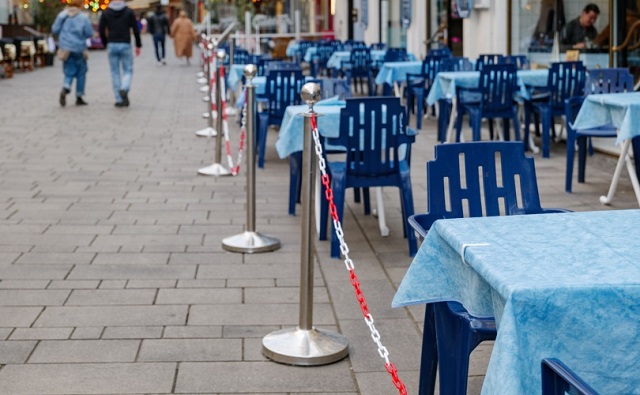
 COVID-192 days ago
COVID-192 days agoSaskatchewan appeals court upholds COVID-era gov’t restrictions on outdoor gatherings
-
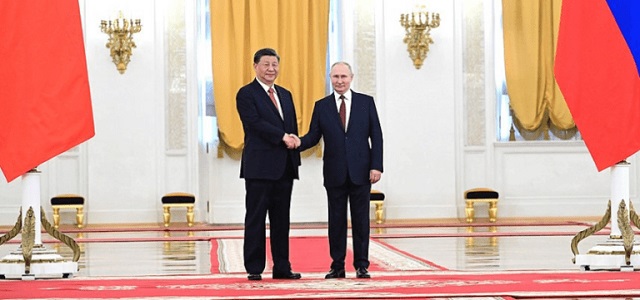
 Agriculture14 hours ago
Agriculture14 hours agoThe China – Russia “Grain Entente” – what is at stake for Canada and its allies?
-

 Automotive24 hours ago
Automotive24 hours agoEV transition stalls despite government mandates and billion-dollar handouts
-
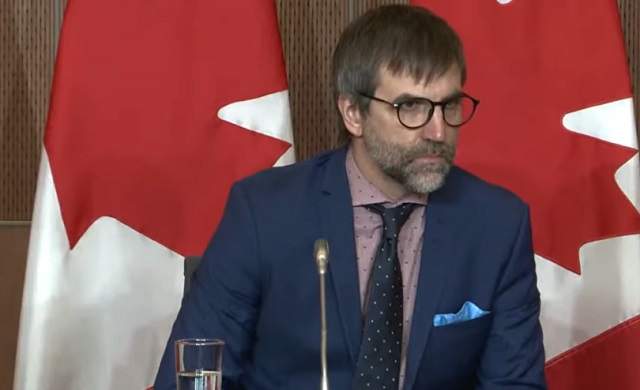
 Business13 hours ago
Business13 hours agoTrudeau’s environment department admits carbon tax has only reduced emissions by 1%
-

 Business9 hours ago
Business9 hours agoGovernment red tape strangling Canada’s economy
-
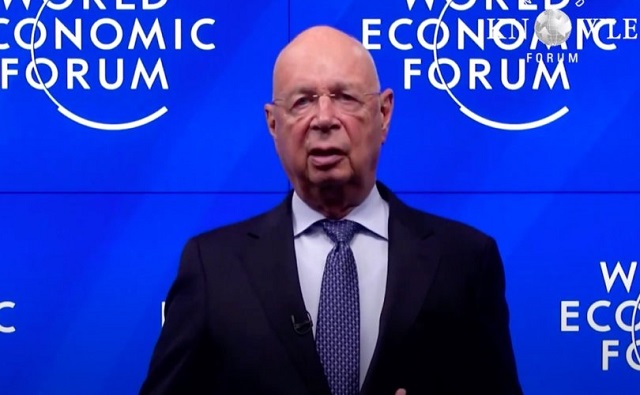
 Great Reset14 hours ago
Great Reset14 hours agoDr. Robert Malone reacts to Klaus Schwab’s resignation: ‘Resistance is not futile’
-
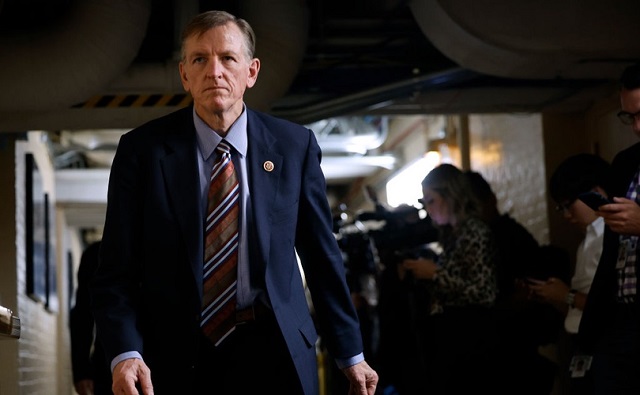
 International11 hours ago
International11 hours agoRep. Paul Gosar grills Biden official on government funding of underage ‘gender transitions’
-

 International2 days ago
International2 days agoFormer GOP Republican Presidential Candidate Buys Activist Stake In Left-Wing Outlet







